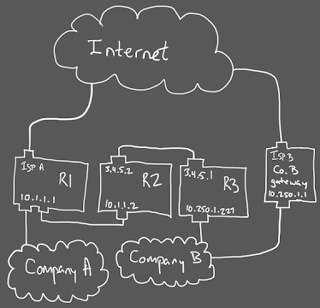Updated 2013-01-30
Please see the next version, which allows for newly-written FastCGI scripts that do not have a CGI equivalent.Original post follows.
I couldn't really find one of these on the Internet, so I'm going to document what I have working so far. In the following examples, assume an application named "site" rooted at /home/site/web, with static files served out of public/, app-specific modules contained under lib/, and other perl module paths (vendor, local::lib, etc.) compiled into Perl itself. Site::* references an app-specific module, naturally.
Apache configuration snippet, using
mod_fcgid as the FastCGI process manager:DocumentRoot /home/site/web/publicNote that the left of RewriteRule is matched, and the $1 reference assigned, prior to evaluating RewriteCond's. The rule means, "if the requested filename exists where the FastCGI wrapper will look for it, force it to be handled by FastCGI." This interacts perfectly with DirectoryIndex: requesting / with a
FcgidInitialEnv PERL5LIB /home/site/web/lib
FcgidWrapper /home/site/web/handler.fcgi
RewriteEngine on
RewriteCond /home/site/web/lib/Site/Entry/$1.pm -f
RewriteRule ^/(.*)\.pl$ - [QSA,L,H=fcgid-script]
DirectoryIndex index.pl in effect invokes the handler.fcgi for index.pl as long as Site::Entry::index exists.Now, my handler.fcgi named in the Apache configuration for the FcgidWrapper looks like this:
#!/home/site/bin/perlThis means that I can have models named like
use warnings;
use strict;
use CGI::Fast;
use FindBin;
use Site::Preloader ();
while (my $q = CGI::Fast->new) {
my ($base, $mod) = ($ENV{SCRIPT_FILENAME});
$base = substr($base, length $ENV{DOCUMENT_ROOT});
$base =~ s/\.pl$//;
$base =~ s#^/+##;
$base =~ s#/+#::#g;
$base ||= 'index';
$mod = "Site::Entry::$base";
my $r = eval {
eval "require $mod;"
and $mod->invoke($q);
};
warn "$mod => $@" unless defined $r;
}
Site::Login and view-controllers for them under Site::Entry::login (handling /login.pl, naturally). I still have to rewrite the site from vanilla CGI scripts into module form, but the RewriteRule work above means that the FastCGI versions can be picked up URL-by-URL. It doesn't require a full-site conversion to a framework to gain any benefits.There's one additional feature this wrapper has: by using SCRIPT_FILENAME and removing DOCUMENT_ROOT off the front, I can rewrite a pretty URL (prior to the last RewriteRule shown above) to one ending
.pl and still have the wrapper work. SCRIPT_NAME keeps the name of the script as it was in the original request, and does not receive the rewritten value. (Only SCRIPT_FILENAME does, on my exact setup.) So I did it this way, rather than re-applying all my rewrites in Perl.

